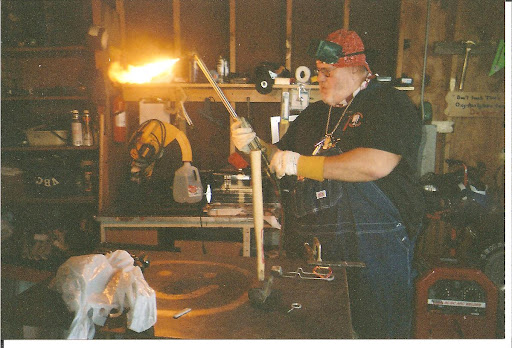tschuckman@aol.com
Foreword in French:
Bonjour les amis,
nous avons tous envie de manger les bonnes choses qui font de nous une saine et intelligente, donc nous devons être sur le regard dehors pour les produits dangereux en provenance de pays qui n'ont pas ou peu de lois et règlements. Et c'est tellement pratique d'avoir un moyen simple de tester la pureté de nos produits alimentaires importés, comme celles mentionnées ci-dessous en anglais. Je pense que vous aurez envie de partager cette nouvelle avec vos proches et amis.
Cordialement,
Tom Schuckman
Email : tschuckman@aol.com
"Jésus est Seigneur".
Hello Friends,
We have rain and thunder U.P. here this morning. Things are going well for me with a bright future smiling at me.
You may have heard me say several times that I don't mind paying a few extra dollars for a good, product, made in America. Well, That is because I just have a problems trusting some other countries manufacturing practices, ethics, rules and regulations ! First it was bad, sub standard dog food, and then baby formula, etc., and now "Plastic Rice !" Obama's formulas, rules and laws were designed to cripple America's producers, factories and workers.... but places like China just don't give a hoot about the quality of their foods, etc., and the 'bottom line - $$$', or Yuan, is the most important thing that they are seeking ! Beware, and share this News.
Warm Regards,
Tom Schuckman
Email: tschuckman@aol.com
Here’s How To Identify Fake Rice Sold In The US Coming From China That Is Made Of Plastic
Updated August 8, 2017

One of the remarkable things about living in a truly global society is the vast amount of trade in agricultural products that occurs. Foods, both exotic and staple, are sent from producer to consumer from all over the world, making avocados and strawberries as plentiful in January as they used to be in high summer.
But this same global food chain can also lead to serious problems when governments do not maintain the same regulatory standards for food safety and quality. One area receiving a huge amount of press over the last few years is the rise of “fake” food being produced and exported by China. There has been a groundswell of scrutiny paid to Chinese produced food sent to the US, since baby formulas, canned foods, and pet foods were found to contain ingredients banned by the USDA and FDA a few years ago. But has it gotten any better? Let us consider rice:
Some sources are reporting that Chinese produced rice may contain harmful fillers and additives including plastics like melamine. It has been posited that some Chinese rice may be nothing more than potato starch and shredded plastic, flavored with rice steam. In fact, some even claim that a handful of the tainted fake rice may contain as much plastic as a ziplock sandwich bag.
One sure way to protect your family is to only buy domestically produced rice. Did you know that the state of Arkansas is the largest producer of rice in the United States. Arkansas provides 45% of all the rice we eat.
If you just have to buy rice produced in China, which you don’t, there are some simple tests you can run on samples to ensure that you are getting the real deal.
If you have access to a mortar and pestle, you can grind up a few dried grains into a fine powder. If it is all natural, it will be snow white. The presence of yellowish color may indicate plastic content.
You can also subject a grain to a fire test. Apparently, natural rice does not burn, but fake rice containing plastic compounds will burn very easily indeed.
One test that seems a little strange is the water test. You might remember it from your American history class, when you got to the chapter on the Salem Witch Trials. If you drop a grain of dried rice into a glass of water and it sinks, it is safe to consume, whereas if it floats, it may contain plastics and should be avoided.
The fun thing about science though is that you do not have to take someone else’s word for something. You can always test a supposition against results you observe on your own. Of course, it is also beneficial to listen to credentialed experts when you can not or will not perform tests yourself. They are trained experts after all.
Of course, the scientists working for the USDA and the FDA probably have more unbiased insight into the safety of imported foodstuffs than scientists that work for agribusiness and food companies.
So, who do you trust to provide you with solid information about the safety of your food? Share your opinions with us here.
Share this story and help build a home for a disabled veteran. 






No comments:
Post a Comment